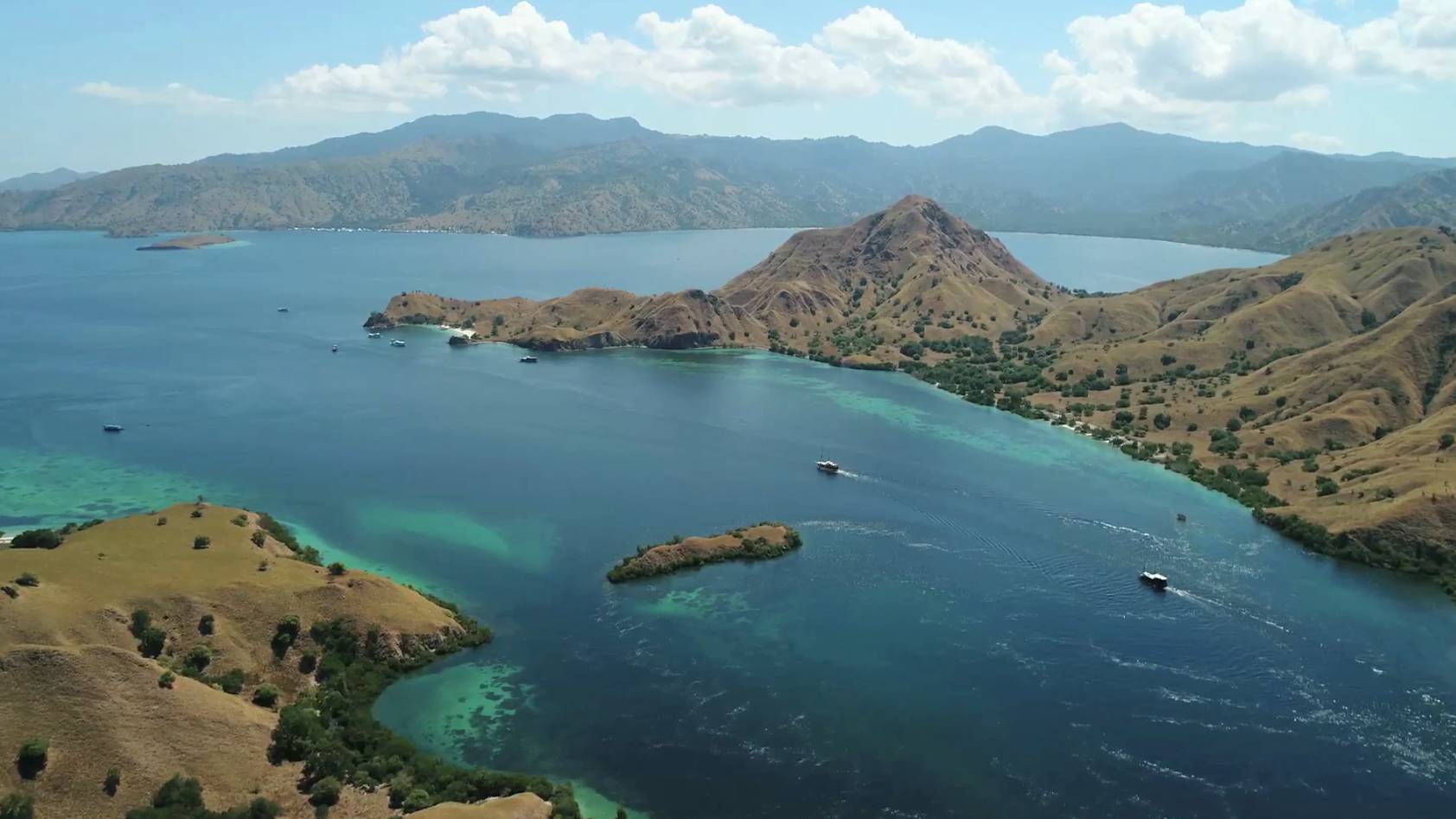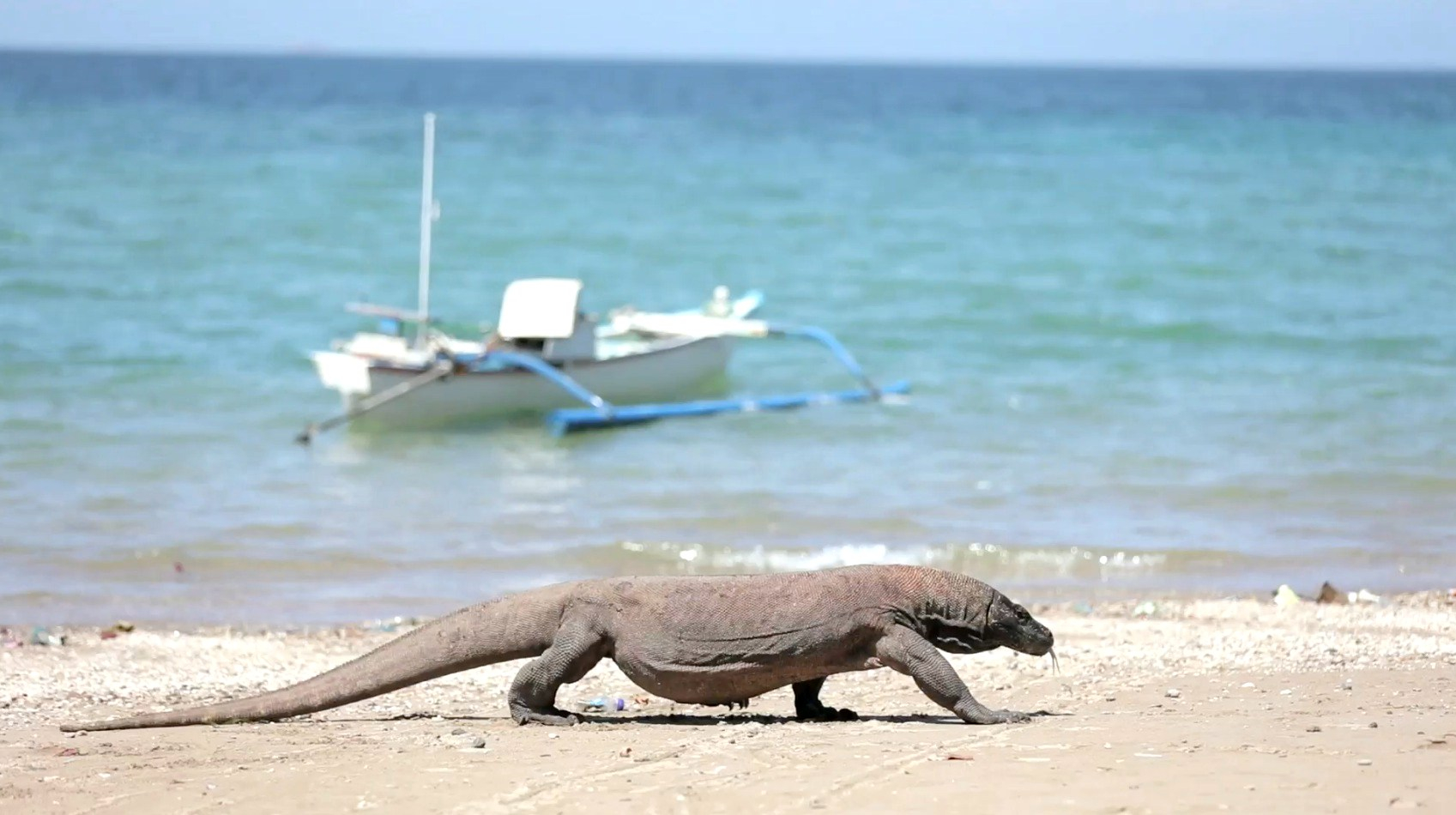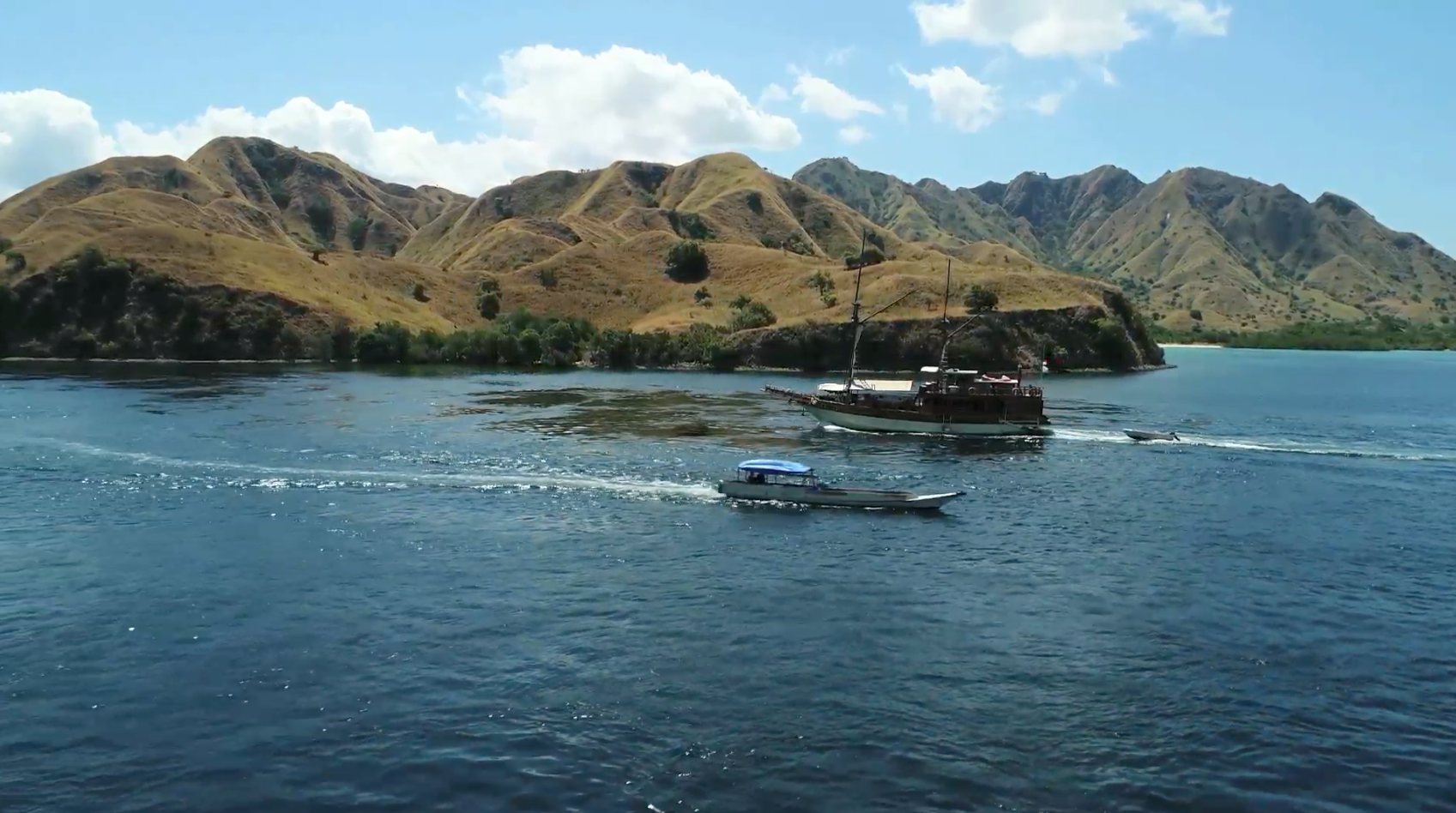
Animal
13:31, 09-Apr-2019
Komodo National Park to close to visitors for one year
By Silkina Ahluwalia
02:21

The East Nusa Tenggara government of Indonesia plans to close the Komodo National Park tourist site from visitors for one year. The main purpose is to increase the population of Komodo dragons and deer by planting native vegetation, which is the main source of food for these protected creatures.
The local government believes the closure will allow them to further facilitate and organize the popular tourist area. The condition of the Komodo dragon habitat in West Manggarai Regency, located at the western tip of the island of Flores has diminished quickly, as a result of the decreasing population of deer in the island.
Authorities are worried that if the population of deer keeps decreasing, the likelihood of the dragons surviving will be very small.

Komodo dragons are a protected species in Indonesia. /CGTN Photo
Komodo dragons are a protected species in Indonesia. /CGTN Photo
The Ministry of Environment and Forestry will form an integrated team to review the temporary closure of Komodo Island. The results of this evaluation will be announced in July 2019. If confirmed, the closure will take effect as of January 2020.
One of the reasons for the closure is also attributed to the increase in wildlife smuggling in the island. Many visitors go to the island to try and smuggle baby dragons or their eggs to be sold in the black market. Each creature can be sold up to 35,000 U.S. dollars.
Lukas Adhyakso has been working as a conservationist at World Wildlife Fund Indonesia for decades. He says Indonesia's wildlife population is the crown jewel of the country and needs to be protected at all costs.
“It is a worrying situation. What used to be traditional businesses have now moved to online and because of that it's very difficult to trace but the government has also taken few steps including the investigation in the cybercrime unit to try to mitigate the trading of wildlife specimens online,” said Lukas.
The temporary closure will also have a huge impact on the region's economy. Many travel agencies are worried that their businesses could be heavily affected.

The Indonesian government is working to promote other islands in Flores for tourism. /CGTN Photo
The Indonesian government is working to promote other islands in Flores for tourism. /CGTN Photo
Tedjo Iskandar has his own tourism training center and he has seen tourists in Komodo Island increase in the past few years, from 120,000 in 2017 to more than 126,000 in 2018.
“As you know many big investments are there. There are many new hotels; they invest in transportation, boats, and lives aboard, as well as diving equipment. Years by years, the government of Indonesia is promoting Wonderful Indonesia with the logo of this giant lizard, our lovely Komodo and suddenly you stop. And as we know our overseas friends plan up to three to four years before.” said Tedjo.
The increase in tourism is not to be blamed, according to Tedjo, but the closure will allow the government to develop better tourism facilities. As of now, the island is not entirely equipped to accommodate hundreds of thousands of tourists, compared to sites in the popular island of Bali.
But this is what the Indonesian government is hoping to achieve during the temporary closure. And the Ministry of Tourism is working to promote other destinations around Indonesia. While the Komodo Island is closed to tourists and visitors, the Ministry will help to suggest tourists explore neighboring islands such as Padar Island, Gili Motang and Nusa Kode.
For now, experts believe the most crucial thing is to monitor the population of these creatures and finding a proper solution to protect them while still allowing others to marvel at the beauty of the giant lizards.
(Cover image: the Komodo National Park has been a tourists hotstop since 2014. /CGTN Photo)
(If you want to contribute and have specific expertise, please contact us at nature@cgtn.com)

SITEMAP
Copyright © 2018 CGTN. Beijing ICP prepared NO.16065310-3
Copyright © 2018 CGTN. Beijing ICP prepared NO.16065310-3